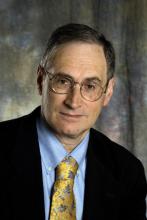In this year marking the centennial of the founding of the precursor of our current Department of Asian Languages and Literature, it is worth noting both how much things have changed in the past few decades and how fortunate we are to have a department such as ours here at the University of Washington.
Let me start with a story drawn from my own academic background. I grew up in the borough of Queens in New York City. I went to a public high school and one of New York City’s free municipal colleges. The high school I went to offered pretty much the standard array of foreign languages, German (mostly for those going into science), French (for those interested in the arts), and Spanish (taken by many, like me, deluded into thinking it would be easy). That was it. In college, a larger selection of languages was available, but these were primarily modern European languages, such as Italian, Russian, Dutch, and the standard classical languages Latin and Greek. The two departures from the standard package were Hebrew and Chinese, which had recently been added to the curriculum. There was no Japanese, Korean, Hindi, Sanskrit or Arabic, not to mention languages such as Indonesian, Vietnamese, or Thai.
The situation at my alma mater was hardly different from what would have been the case at hundreds of colleges and universities throughout the United States. Given this, it is impressive to realize that as early as the first decade of the twentieth century the Regents of the University of Washington had the foresight and wisdom to establish a department devoted to the imparting of instruction on the literature, languages, and civilizations of Asia. The idea that the literary monuments of Asian nations were as worthy of study as the literary and cultural monuments of the West was by no means a widely held view in my student days. I certainly did not encounter this view as part of my high school education and had only limited exposure to it in college. Had I a mind to study such languages as Sanskrit and Hindi as an undergraduate, it would not have been possible for me to do so. But it would have been possible to do so at UW. Although the UW was by no means unique (it was, after all, possible to study Asian languages at Columbia, Berkeley, Chicago, and several other institutions), it is undoubtedly the case that the UW got into the Asian languages and literature business early and took the enterprise seriously. This is no small achievement.
As of now, our Department offers instruction in ten different Asian languages, provides majors and minors to something on the order of 140 undergraduates, trains M.A. and Ph.D. graduate students in several Asian languages and in Buddhist Studies, and in addition, offers a wide variety of undergraduate courses and graduate seminars in topics ranging from literature and culture to epigraphy, linguistics, and cultural studies. The Department’s graduates have gone into all sorts of fields, from academia and teaching to public service, medicine, law, and technology. And very importantly, the idea that the landmarks of Asian culture and civilization, whether the Tale of Genji, and Analects of Confucius, or the Bhagavadgita, are not cultural oddities, but rather part of the common heritage of world civilization as a whole, is a generally accepted truism. It is clear then, that we have come a long way during the past century.
I would be remiss to fail to note that this past year has not been an easy one in many ways. The economic meltdown has had its effects on the Department. Like every unit on campus, we have endured our share of cutbacks, and there is no guarantee that there won’t be more in the immediate future. In particular, we suffered the loss of several TA positions, leading to a reduction in the number of sections we can offer in some basic language classes. Although some of these positions wound up being restored on an interim basis, it is clear that in the coming few years our department will be operating in difficult financial circumstances. In addition, this year we experienced the tragic loss of one of our friends and colleagues, Carol Salomon (see article). Dr. Salomon contributed greatly to our department. It is difficult to imagine it without her.
Michael C. Shapiro
